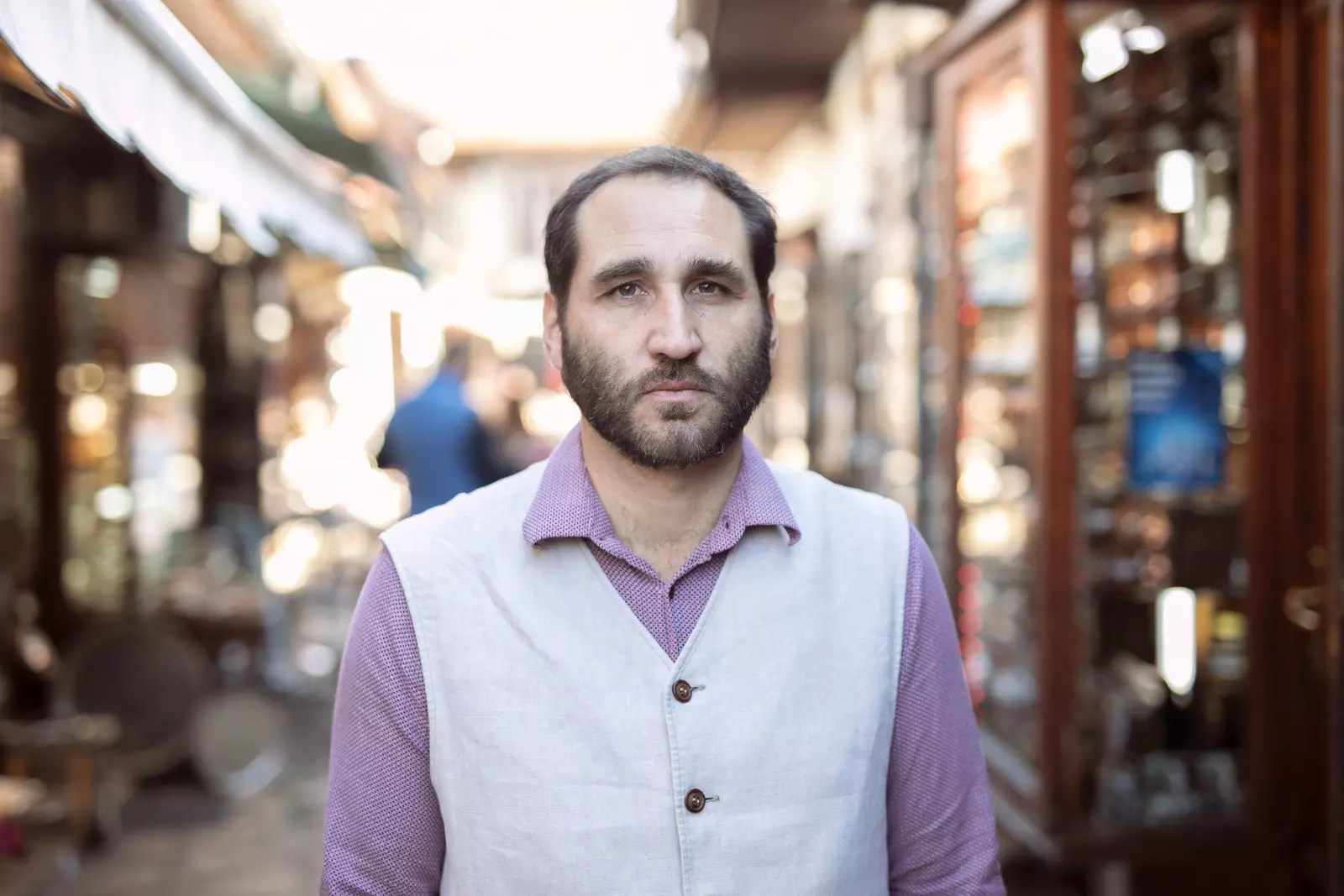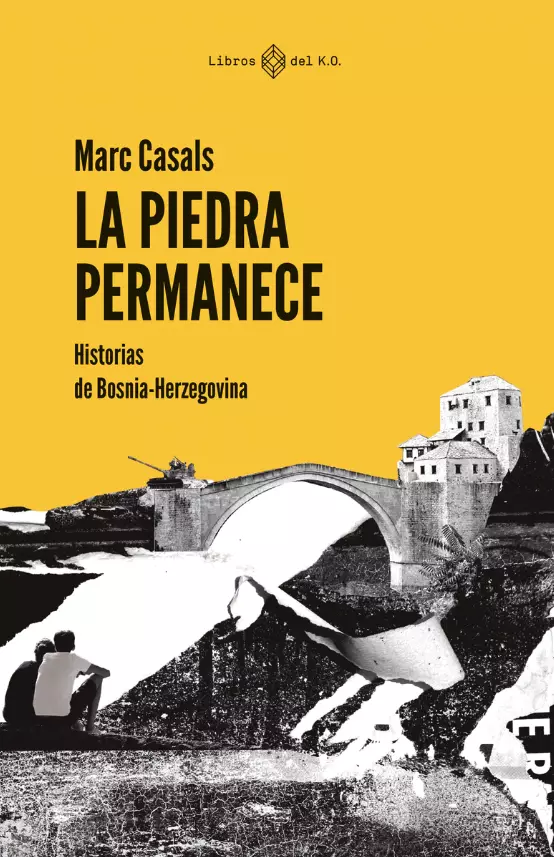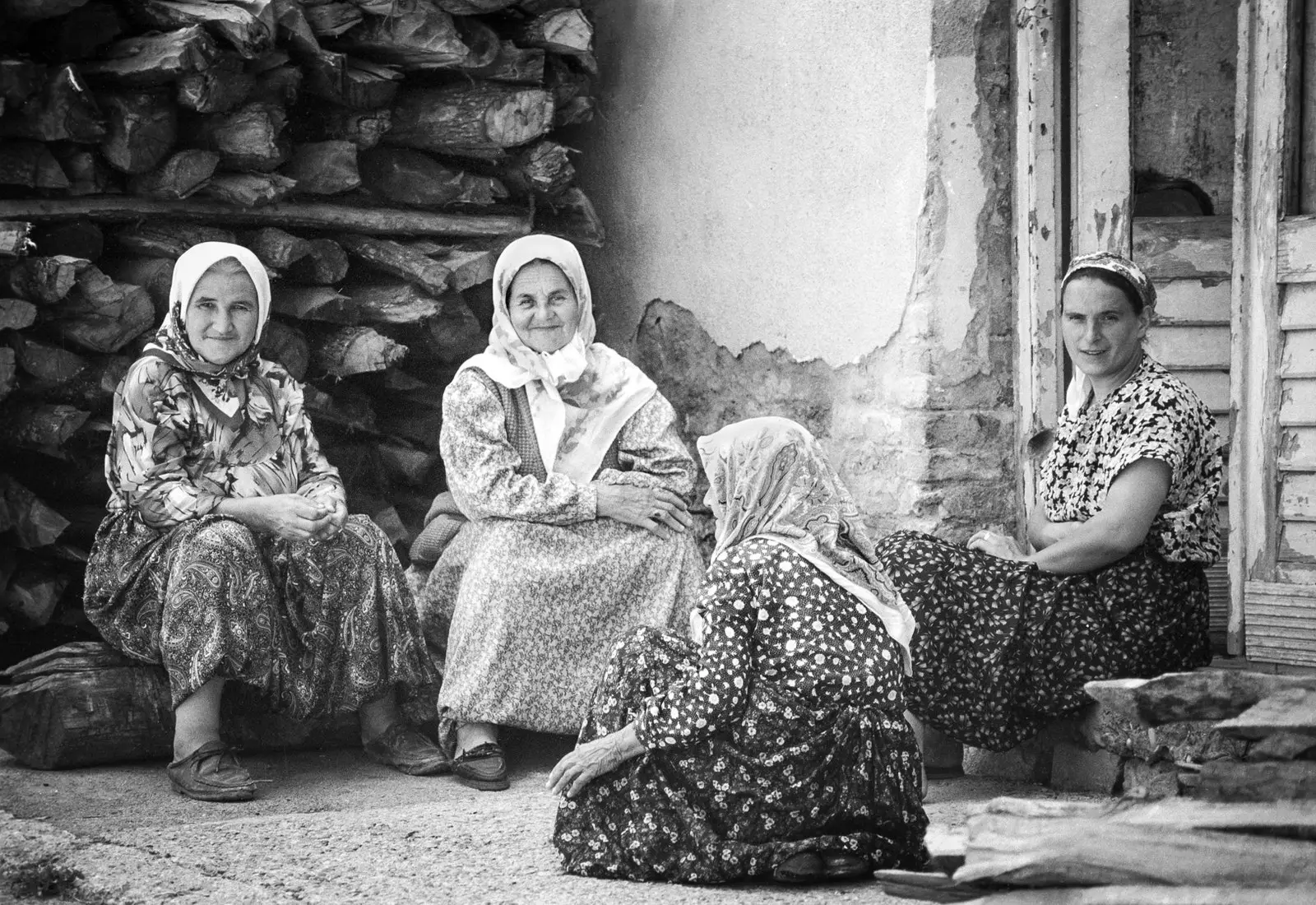30 years have passed since the small country of Bosnia Herzegovina bled to death because of the war. A fight that ended almost a hundred thousand dead and around two million displaced people and which dropped a dark mythology. Negative prejudices that were made worse by the general ignorance about the place and its isolation from Western Europe.
However, Bosnia-Herzegovina not a bunch of stereotypes miscounted. As pointed to Condé Nast Traveler Marc Casals, writer who has been living in the Balkans for 15 years and who has now published the stone remains (K.O. Books), it is a special country because in it darkness and subtlety alternate. “Also because of the people who live in it, because of its combination of strength, delicacy and sense of humor. A magnetism that goes beyond words”, he explains.

Marc Casals has been living in the Balkans for 15 years and now publishes 'The stone remains' (Books of the KO).
To try to reflect it, he put together in the book 16 stories of people They did something positive for the country. Lives that serve you break c with the prejudices of the area, since he believes that it is a terrible and unfair perception. Thus, to combat it, instead of writing diatribes against stereotypes, he focused on showing a few bosnians in all his humanity. “I think the reader has no problem understand them and empathize with them, because they are not fundamentally different, except for the sad historical circumstances that they have had to live with,” he says.
THE STORY OF ORDINARY PEOPLE
Most of these people he knew before thinking of writing the work, so he did not go looking for "characters or stories, but simply by deciding to carry out the book I began to consider who could be interesting in itself and, at the same time, serve as a common thread to tell the peculiarities from Bosnia,” he notes.
Lives that all have one thing in common: They are torn by war. In all you can read a before, a during and an after of the conflict. “I think the statement is true for all the protagonists of the book. In all cases there is a modest life, but stable and with prospects for improvement, which is broken dramatically by the war. Then the strength of these people comes into play to rebuild and rebuild his life in a dysfunctional context”.

'The stone remains', by Marc Casals (K.O. Books).
A feature that works for you too to explain the country from different angles. Like the cultural, the industrial, the religious or the diversity. As he says, being an area where a war was fought, “its historical, cultural and identity complexity I find them fascinating and they have not only been a source of destruction, but also of wealth. Without leaving the war aside, I wanted get out of the monotheme a bit and teach these other aspects of Bosnia that I know first hand and I like".
PROPER NAMES
Although it costs decide for one, since all the stories in the book are very close to him, Marc Casals believes that the one that impacted him the most was that of Fazila. A life that srebrenica tragedy split in half.
It happened in this city one of the greatest atrocities of the war that ravaged the Balkans. There, in 1995, the Bosnian Serbs killed about 8,000 people ethnic Bosnian Muslim. A massacre that occurred in an area that was under the protection of 400 Dutch blue helmets. Another of the atrocities that cannot be understood from that war.
Today, Fazila has managed to get ahead and he set up a flower kiosk next to the cemetery. Marc Casals met her by chance, while working as a Bosnian and Spanish interpreter for the International Commission on Missing Persons.

Women in the streets of Srebrenica, image taken in 1993.
"Since the first day I was impressed by his strength but, above all, for her joy, considering what she had lived through. She had never been to Srebrenica and it shocked me so much that I had to go back the following week to assimilate what had happened there and see it again. Since then I always had her in mind and, when I began to think about who could star in the chapters of the book, it was clear to me that Fazila should be. Like the rest of the characters, she was very generous letting me tell her story,” she says.
BOSNIA TODAY
As he makes clear in the book, the population continues to try leave your past behind and the prejudices that weigh it down. But, although she "has iron bad health, in recent times the uncertainties They've gotten worse."
Thus, as if history were determined to be an infinite loop, current Bosnian Serb leader Milorad Dodik “He is involved in a secessionist escalation that does not know how it will end. Furthermore, for a couple of decades, the Balkans are a geopolitical space that Russia uses to destabilize the EU and, after the invasion of Ukraine, also a possible place of conflict. Not on the same scale, of course, but the combination between Dodik's project and Russia's antagonism with the West can be dangerous”.
